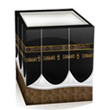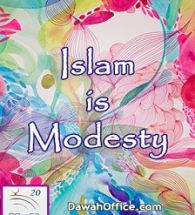It is Not Permissible to distinguish Ali with the Invocation Alaihis -Salam (peace be upon him)
- Details
- Category: Sheikh Bin Baz
- Published on Monday, 04 November 2013 11:58
- Hits: 866
It is Not Permissible to distinguish Ali with the Invocation Alaihis -Salam (peace be upon him)
Question:
I was looking though the subjects covered in the book Aqd Ad-Durar fee Akhbar Al-Muntathar ... in some of the narrations attributed to Ali bin Abi Talib, may Allaah be pleased with him, I find that they are written thus: It is reported on the authority of Ali bin Abi Talib, Alaihis-Salam (upon him be peace) that Allaah's Messenger (sallallaahu alaihi wa sallam) said: There will come forth a man from among my family with nine banners. What is the ruling on using this expression, I mean Alaihis-Salam (upon him be peace) or the like for other then the Messenger of Allaah (sallallaahu alaihi wa sallam)?
Answer:
It is not appropriate to distinguish Ali with this saying. Rather, what is legislated is that it be said in his case and the case of other Companions: Radhi Allahu Anhu (may Allaah be pleased with him), Radhi Allahu Anhum (may Allaah be pleased with them) or: Rahimahullah (may Allaah have mercy on him). This is because there is no evidence for distinguishing him by it. Likewise is the expression used by some: Karram Allahu Wajhahu (may Allaah bless his countenance), there is no evidence for using it, nor is there any reason to distinguish him by it. It is best to treat him the same as the rest of the Well-Guided Caliphs and not to apply any special words to him which are not applied to the others, when there is no evidence to support it.
Shaykh `Abdul-`Azeez Bin Baz
Fatawa Islamiyah Vol. 1 Page 114





















